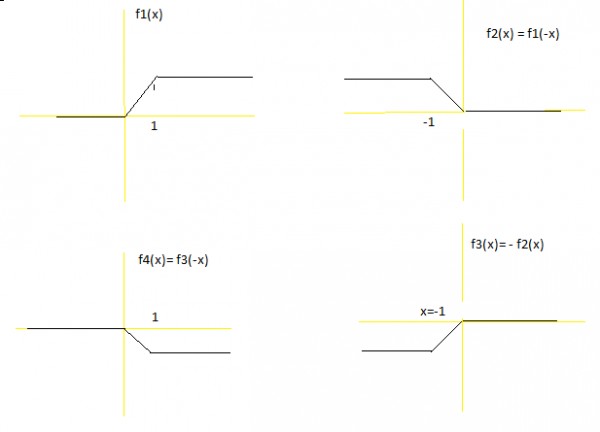
Q1.
f1(x).f2(x) = 0 for all x, because f1(x) = 0 for x < 0. and f2(x) = 0 for x >=0.
f2(x). f3(x) = -1 for x <=-1.
= -x^2 for -1<x<= 0
= 0 , x >0.
f2(x).f4(x) = 0 for all x, because f2(x) = 0 for x >0 and f4(x) = 0 for x <=0.
Ans - Option 3. 2
f2(x)=f1(−x)
f3(x)=− f2(x) = − f1(−x)
f4(x)= f3(−x) = − f2(−x) = − f1(x)
2. Which of the following is necessarily true?
- f4(x)=f1(x) for all x. false - { f4(x)= - f1(x) }
- f1(x)=f3(−x) for all x. false - { f1(x)= - f3(−x) }
- f2(−x)=f4(x) for all x. false. { f2(−x)= - f4(x) }
- f1(x)+f3(x)=0 for all x. false . { f1(x)= - f3(−x) }
Ans - None.
Thank you Arjun sir for correction.